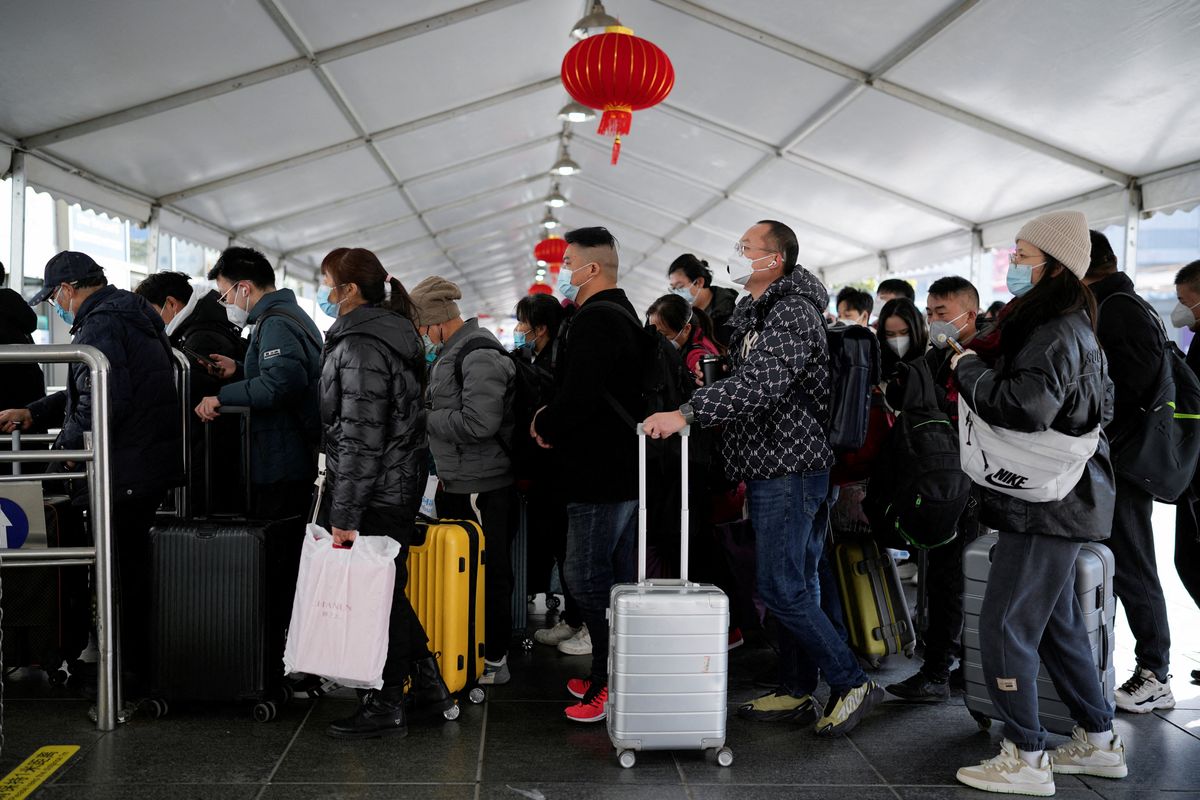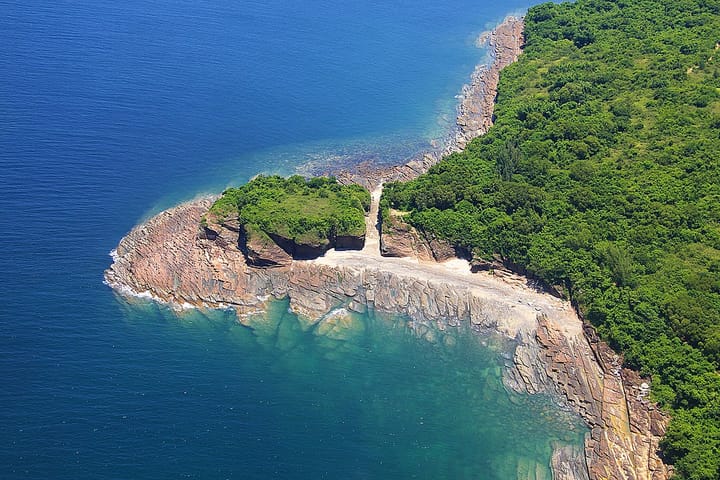Hundreds of millions travel for the Lunar New Year in China after years of zero-COVID
China dropped its zero-COVID approach last month, and authorities announced plans to open up the country to more travel.

A few minutes every morning is all you need.
Stay up to date on the world's Headlines and Human Stories. It's fun, it's factual, it's fluff-free.
The backstory: China dropped its zero-COVID approach last month, and authorities announced plans to open up the country to more travel. But, because of the recent COVID surge there, some other countries have been concerned about its spread. So, more curbs have been put in place in many countries for travelers coming from China. These include testing and quarantine orders.
More recently: On January 8, Chinese travel restrictions were lifted. With the Lunar New Year being such a major holiday and travel event, this was great timing for residents. Many people have been gearing up to see family and friends for the first time since COVID travel restrictions were put in place over three years ago. According to a report from the Chinese Center for Disease Control and Prevention last Wednesday, hospitalized COVID cases have declined more than 70% from the outbreak's peak earlier in January.
The development: The Lunar New Year, which kicked off the Year of the Rabbit, began on January 22. Based on reports from state media, Lunar New Year domestic holiday trips in China went up 74% from last year. In fact, over 300 million trips were made during the holiday, which is about 90% of pre-pandemic levels. International travel surged, too, as there were 2.88 million trips made across the border, up 120% from last year, according to government records. But it's still unclear how widespread the outbreak has become, so we'll have to see if any pandemic data changes in the next few days or weeks.
Key comments:
"Pent-up demand is being released as many people rush to scenic spots, watch firework shows and crowd into restaurants and hotels," said Ting Lu, chief China economist at Nomura Holdings, in a note on Thursday.
"It looked as if we were watching a zombie movie, as people lined up heel-to-heel and shoulder-to-shoulder in a meandering queue," said Carol Gong, who reunited with family in Shanghai and visited the crowded Disneyland theme park. "People are so relieved that China has reopened. They're starting to relax and enjoy life."
"It is still the winter in the northern hemisphere and many countries are still seeing rapid increases in [COVID] infections, or have just passed the infection peaks. The overall infection and fatality rates are still higher than other infectious diseases," said Chen Xi, associate professor of health policy and economics at Yale University, to the Global Times, saying it's not quite time to declare an end to the pandemic.
"China's remarkable reversal of COVID policies in late 2022 has set the stage for an equally unusual economic recovery in 2023. It's early days yet, but consumer activity is quickly normalizing, and this consumption-led rebound will gather strength in coming months," said research house Gavekal Dragomics in a report.




Comments ()